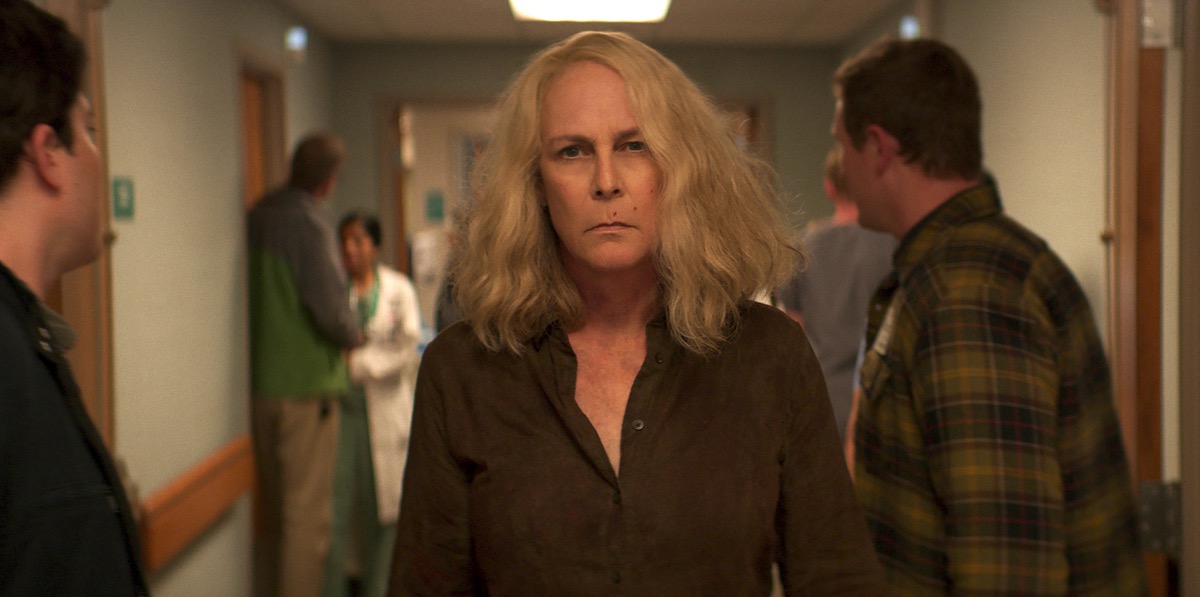‘Halloween Ends’: Laurie Strode and Her Legacy as a Final Girl
This is her legacy.

When we talk about final girls, Laurie Strode (Jamie Lee Curtis) is bound to come up. After all, she’s one of the OGs, alongside Jess Bradford (Olivia Hussey) of Black Christmas (1974). While she may not be a major badass in Halloween (1978), she certainly grows into herself over the course of her tenure in the series, thus cementing her status as one of the best final girls in horror/slasher history—one that’s certainly inspired me personally (seriously, I included her in one of my chapbooks) as a whole.
“The original meaning of “final girl”, as described by Clover in 1992, is quite narrow. Clover studied slasher films from the 1970s and 1980s (which is considered the golden age of the genre) and defined the final girl as a female who is the sole survivor of the group of people (usually youths) who are chased by a villain, and who gets a final confrontation with the villain (whether she kills him herself or she is saved at the last minute by someone else, such as a police officer), and who has such a “privilege” because of her implied moral superiority (for example, she is the only one who refuses sex, drugs, or other such behaviors, unlike her friends).”
– Wikipedia
In the first film of the franchise, she fits the bill of an outdated definition of a final girl. Unlike Jess, who was outspoken, she’s relatively reserved and virginal—until she’s forced to run from and face Michael (Nick Castle) that fateful Halloween night, which changes her life forever and twists her into a different person. Regardless of the timeline (not counting Rob Zombie’s remakes), Laurie has always gone through some bullshit, with Halloween H20: 20 Years Later (1998) being her most triumphant film—unless you count the (potentially) final Halloween entry, Halloween Ends (2022).
Her persistence to survive is part of what makes Laurie so alluring as a final girl. Halloween (1978) and Halloween II (1981) saw her at her most fearful. Meanwhile, later entries saw her doing everything in her power to survive—with Halloween: Resurrection (2002) spitting in our faces, but that’s a different topic for another day. Thankfully, Halloween Ends (2022) actually gives Laurie a sendoff involving closure—something that people probably didn’t expect from the H40 trilogy (in which the other films in the original timeline never happened). For all the issues that the H40 trilogy has, it certainly doesn’t ignore Laurie’s legacy.
Her trauma isn’t ignored, and we’re in full view of how Michael has fucked her up. Halloween Kills (2021) does ring hollowest and lacks that depth that Halloween (2018) does, in my eyes. But all in all, the trilogy captures a traumatized Laurie who must fight even harder to live. This trilogy ends with Laurie no longer running from Michael—or who she is, as a result. She’s finally done with living in fear and avoiding a new life because of the Boogeyman, something that trauma survivors aren’t always allowed to do in horror. Certainly not final girls.
Believe me when I say other horror franchises have done their final girls dirty, from A Nightmare on Elm Street’s Nancy Thompson (Heather Langenkamp) to Sally (played by Olwen Fouéré) in Texas Chainsaw Massacre (2022). While those are examples of not being able to escape your trauma, grief and pain (which is also realistic), it’s a relief that Laurie’s legacy hasn’t been shat on. She’s going to live on in the hearts of fans, and Jamie Lee Curtis will forever be iconic in horror. She’ll remain an example and blueprint for the ways in which you can end a final girl’s story. And she’ll always be a personal favorite of mine and many others.
(featured image: Universal Pictures)
Have a tip we should know? [email protected]